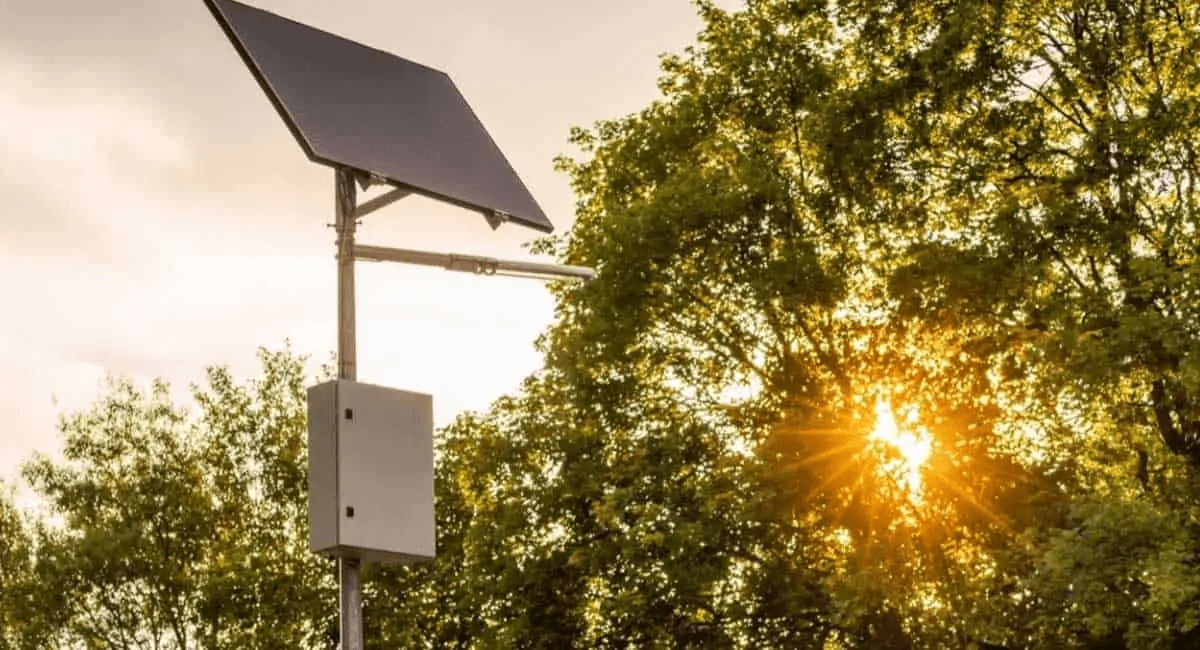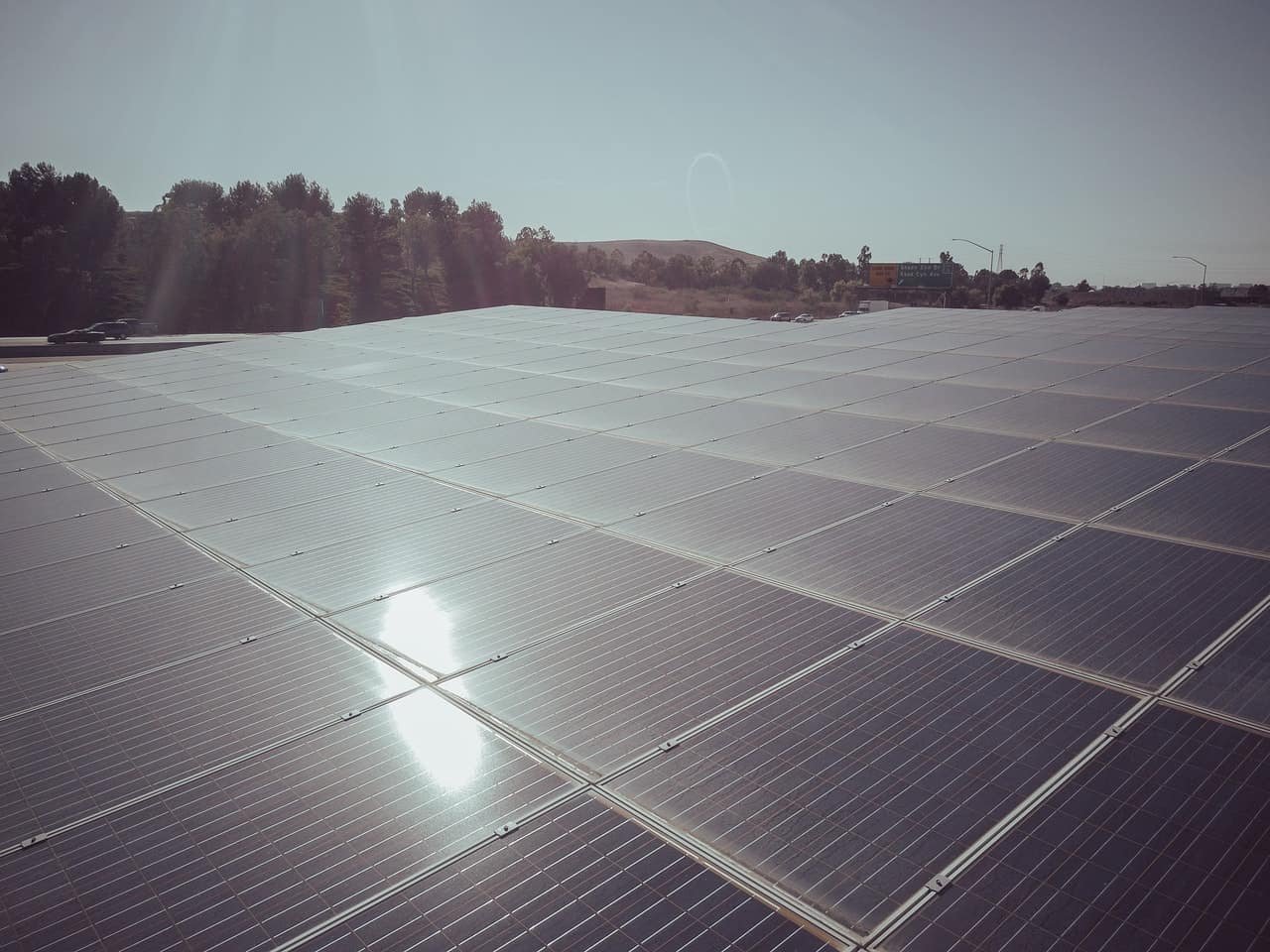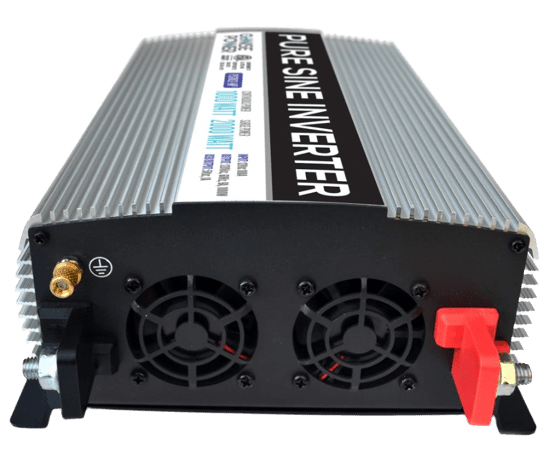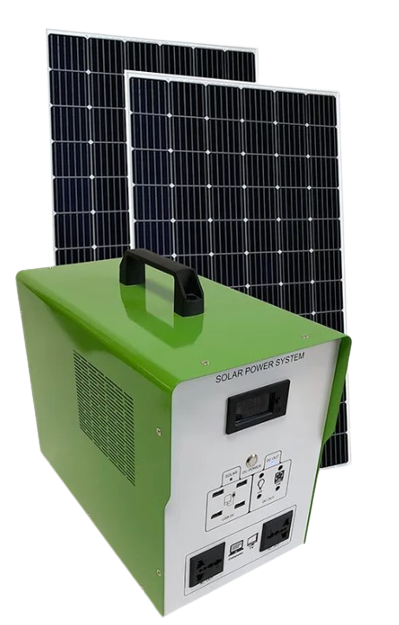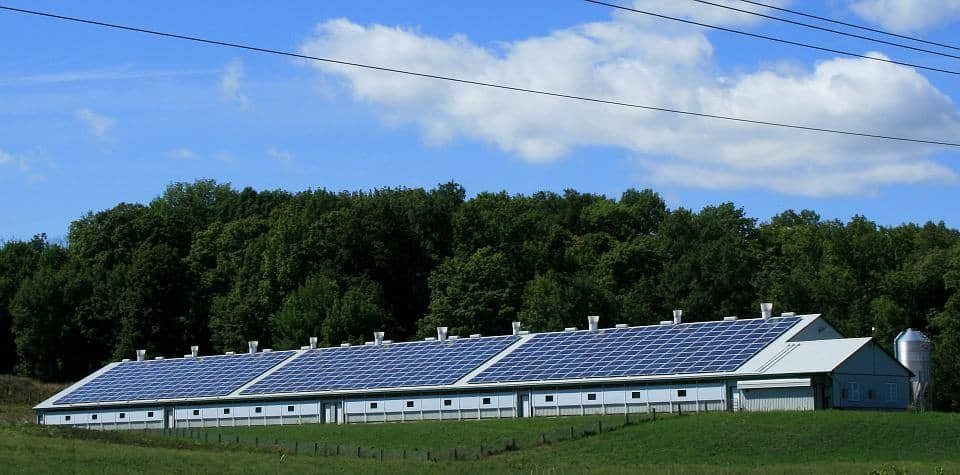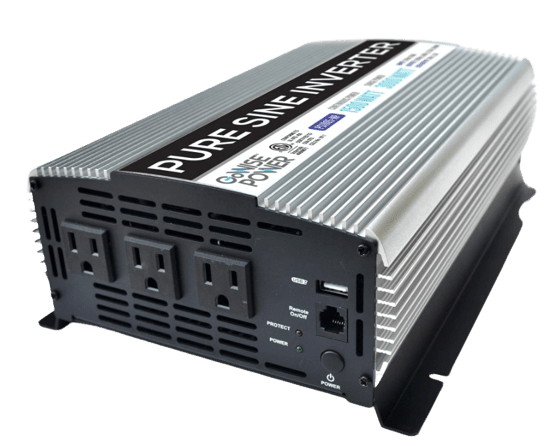If you live in an area where rainy and overcast days are more frequent than sunny days, you might be wondering if solar panels would work for you.
Given that solar panels rely on the sun to produce energy, it’s natural to assume that they need direct sunlight to produce electricity.
In short, the answer is no.
Solar panels work best when they’re being hit with bright rays of sunshine, but they aren’t useless without them. Whether you live in an area with an abundance of direct sunlight or not, you can still use solar energy to power your home.
How Do Solar Panels Work?
According to the Office of Energy Efficiency and Renewable Energy, solar radiation is light that is emitted by the sun. Solar technologies, like solar cells, collect this radiation and convert it into types of energy that we can use.
Every year, the sun shines on every location on Earth, but exactly how much solar radiation reaches any one spot on the surface over a year varies.
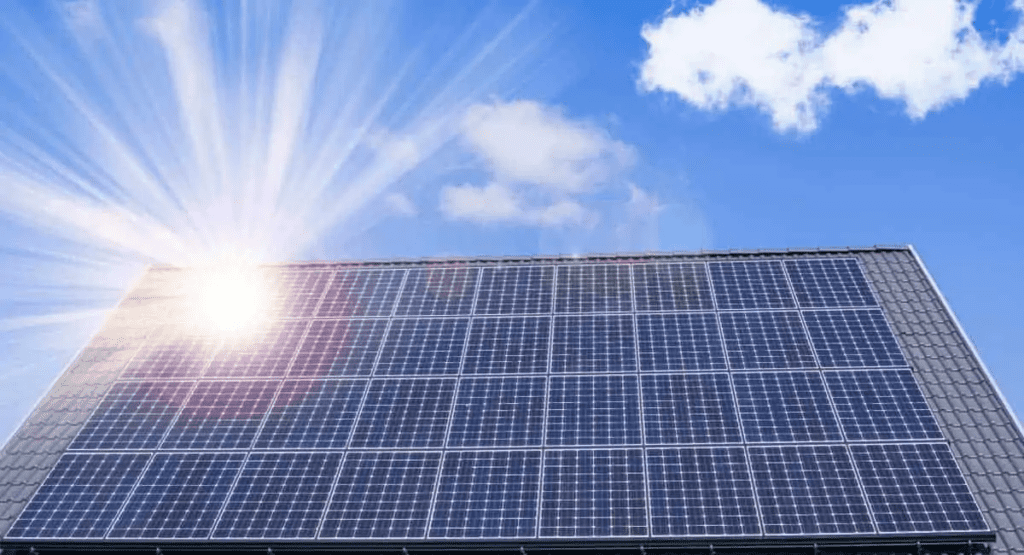
The solar radiation that reaches Earth’s surface is converted sunlight into electricity in one of two ways: through photovoltaic (PV) panels or through mirrors that concentrate radiation from the sun.
Photovoltaic Panels
If you have ever seen a solar panel, which can typically be found on the roof of a home or business, then you’ve witnessed photovoltaic technology at work.
Solar panels use PV. When sunlight hits a solar panel, the PV cells in the panel absorb the sun’s energy. That energy then produces electrical currents that create electricity.
Concentrating Solar-Thermal Power Systems
Concentrated solar-thermal power (CSP) systems are mirrors that reflect sunlight and direct it onto components that accumulate solar energy and convert it to heat which is used to create electricity. This form of solar technology is mostly used in massive power plants rather than for residential purposes.
How Much Sunlight Does a Solar Panel Need?
There are several factors that determine how much sunlight a solar panel needs in order to operate most efficiently, including:
- Roof angle
- Irradiance
- Panel Orientation
- Topology
Roof Angle
When seeking maximum efficiency for your solar panels, you might be surprised to learn how much of an impact roof angles can have.
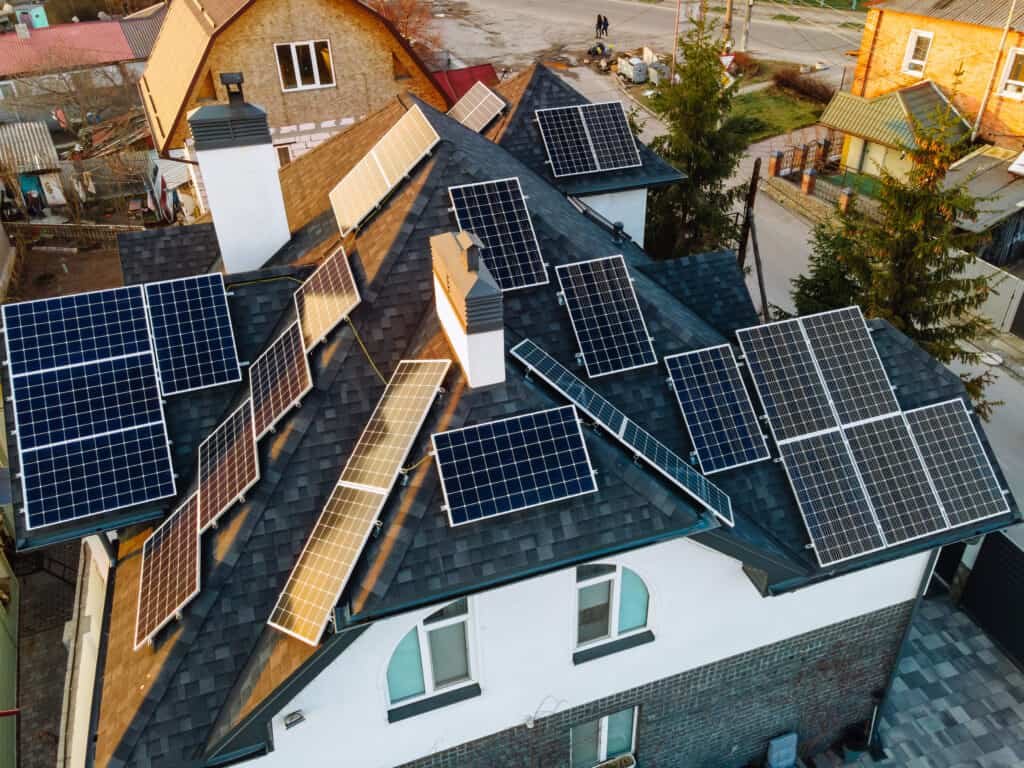
A tilted solar panel is able to produce nearly twice as much power as a flat-mounted one. When configuring your solar panel arrays, or even a single panel, consider tilting your solar system to optimize its efficiency.
Keep in mind that the best tilt angle for your solar array will likely be different during the summer months than in the winter months. To optimize your solar panel efficiency, the ideal tilt angle during the summer is the location latitude -15 degrees.
In the winter months, the best tilt angle for any location is the location latitude +15 degrees.
Irradiance
Irradiance, or the amount of energy from the sun, has the biggest impact on how much solar power is generated. While direct sunlight isn’t necessary, the more direct sunlight a solar panel has, the more power it generates.
Irradiance is different across the globe. For example, San Francisco, California has an average irradiance of 5.69. Learn more about what part of the United States is best for capturing solar energy.
Panel Orientation
Panel orientation refers to the direction that the panels are facing. If you are located in the Northern hemisphere, due South is the best direction to optimize solar panel output.
Before you become overwhelmed with information, consider that a solar installer will make sure your panels are installed and positioned to ensure maximum efficiency.
What If My Solar Panels Aren’t in Direct Sunlight?
Naturally, you might be curious about how solar panels continue to generate electric current during cloudy or cold weather.
First, know that while you might see a slight reduction in solar panel production under cloud cover or partial shade, you can still expect adequate production of electricity from your photovoltaic cells. Even a completely shaded panel can convert photons from indirect sunlight into usable electricity.
The newest solar panels use concentrators like lenses and mirrors to make the most of any sunlight they receive. Since panels use photons from sunlight rather than heat, they can generate electricity in cold weather.
A professionally-installed solar system is built to handle some of the worst weather conditions. Here’s what you can expect in terms of solar power production!
How Do Solar Panels Work in the Rain?
As we mentioned earlier, photovoltaic cells are most effective in direct sunlight, but they can still convert indirect sunlight into usable energy. Your solar panels will still work when it rains, using as much radiation from indirect sunlight as possible.
Plus, while rainy weather conditions will likely affect your panel’s peak output, rain can actually help keep your panels clean by washing away any dust or dirt that has accumulated on the cells!
What If My Solar Panels Are Covered in Snow?
If your panels are covered by a thick layer of snow, it is blocked from sunlight and unable to generate energy. However, snow tends to fall or melt off of solar cells pretty quickly, especially if your panels are installed at an angle.
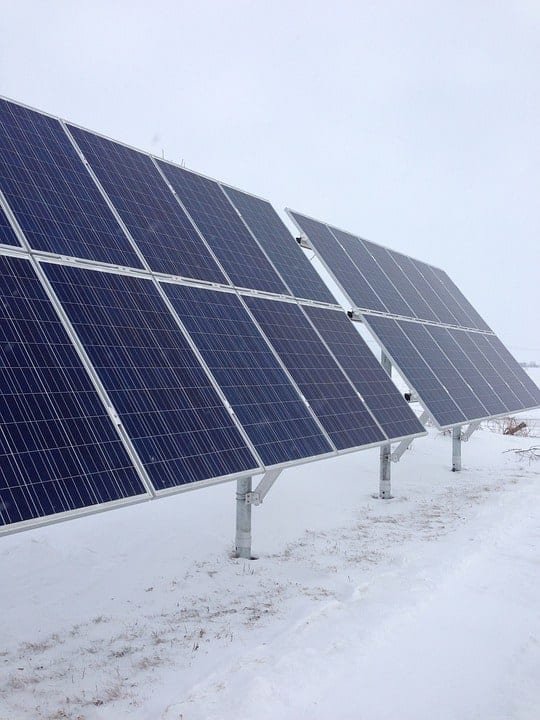
Light snow that only covers your panels with a dusting of snow might prevent peak efficiency of your panels, but it won’t temporarily render the cells useless like a thick layer of snow would.
Since your panels are designed to absorb heat, if even a small part of the panel is exposed to the sun, heat will spread across the panel and melt the snow. There is actually a good chance that your panels will be snow-free before the rest of your roof!
What If My Solar Panels Don’t Produce Enough Electricity?
By using a concept called net metering, your home stays connected to the electric grid. When your panels generate more solar power than your home needs, the excess energy is fed to your local utility provider.
With this agreement, some utilities will credit your bill for any power they receive from you!
Net metering works the other way too. When your solar system doesn’t generate enough solar power to meet the needs of your household, it pulls power back from the electric grid.
This is especially useful during extended periods of heavy rainfall.
Solar Batteries
You aren’t required to purchase a solar battery as part of your installation, but they can be useful in different situations. A home battery storage solution allows you to keep the lights on during power outages and also provides your home with stored energy when your current energy production is lacking.
Conclusion
If you are relatively new to solar energy production, it’s expected that you will have many questions about how solar panels work.
Solar panels don’t need constant sunlight exposure to power your home. Just remember the basics on how to maintain solar panels. No matter whether you live in an area with plenty of natural sunlight or experience frequent rainstorms and overcast days, you can still enjoy the benefits of green energy!
